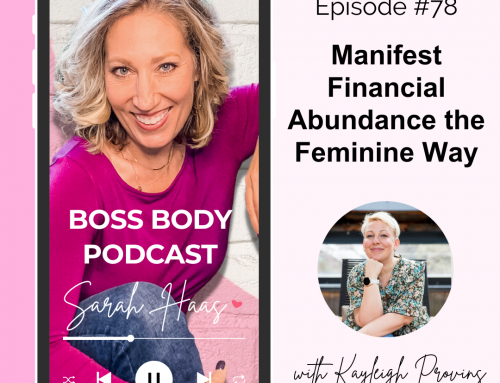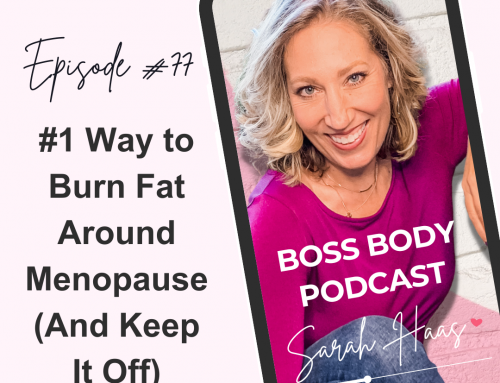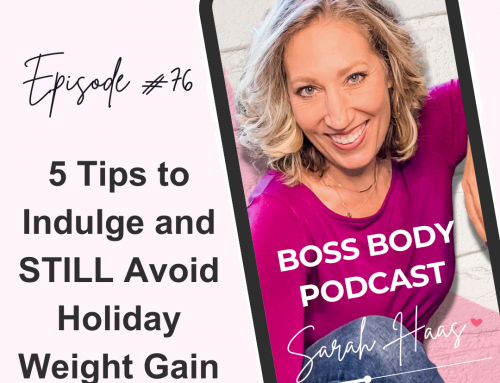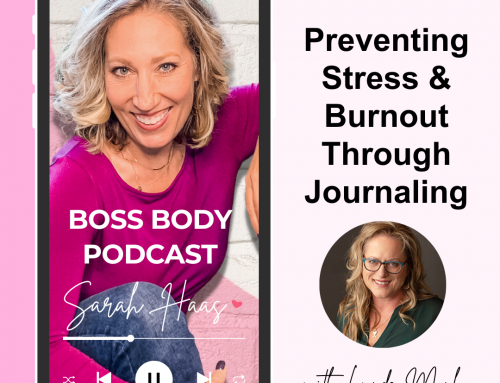Unraveling the Ties Between Trauma, Chronic Pain, and Addiction
Welcome to the latest entry on my blog, where I delve into the profound and often overlooked connections between trauma, chronic pain, and addiction. I’m Sarah Haas, your guide on this journey to empowerment and self-love, and the host of the Boss Body podcast. As a women’s weight loss and body love coach, I’m passionate about helping women embrace their strength, both inside and out. Today, I’m excited to share with you the insights from a recent conversation with the remarkable Elizabeth Kipp, a stress management and historical trauma specialist, and bestselling author.
A Holistic Approach to Healing
In our discussion on the Boss Body podcast, Elizabeth and I explored the intricate relationship between unresolved trauma and its manifestation as chronic pain and addiction. Elizabeth’s personal narrative of overcoming chronic pain and addiction sheds light on the complex interplay of these issues. Her expertise as a practitioner in recovery from addiction and trauma provides a unique perspective on the path to healing.
Having Elizabeth on the show was an absolute honor. Her background in plant science and environmental studies, coupled with her personal experiences, provides a rich tapestry of knowledge. Elizabeth opened up about how unresolved trauma led to her chronic pain, which spiraled into addiction. She highlighted the cognitive, emotional, and negative impacts of chronic pain on the brain, and the shortcomings of traditional medical approaches that often fail to address the root causes.
Defining Trauma and Its Lasting Effects
Together, we unpacked the definition of trauma as the internal aftermath of external events that cause disconnection from oneself, others, and consciousness. The conversation revealed the fragmentation of the self that results from unresolved trauma and the phenomenon of intergenerational transmission of trauma. Elizabeth’s ongoing journey through therapy and various healing modalities offers hope and a roadmap for others facing similar struggles.
The Link Between Trauma and Addiction
The link between trauma and addiction is a critical aspect of our discussion. Elizabeth explained that addiction often stems from a place of disconnection and a quest for relief and safety. I contributed insights on the prevalence of addiction in lower socioeconomic areas and the widespread nature of chronic pain. We both emphasized the importance of community and safe spaces to process and release the pent-up energy of unresolved trauma.
Elizabeth and I are advocates for using a combination of approaches to tackle trauma, chronic pain, addiction, and body dysmorphia. A holistic strategy that includes both traditional medical treatments and alternative practices like yoga and acupuncture is essential. The role of community support and the healing power of connection cannot be overstated.
A Simple Practice for Daily Healing
Elizabeth generously shared a straightforward breath practice that listeners can incorporate into their daily routines to initiate their healing journey. This practice aims to balance emotions and synchronize the brain’s hemispheres, offering a sense of calm and a recalibrated nervous system.
Gratitude and the Power of Shared Knowledge
As our conversation came to a close, I expressed my heartfelt gratitude for Elizabeth’s wisdom and the practical tools she provided. The exchange of knowledge and mutual support is invaluable in our collective healing journeys.
I want to thank you, my readers and listeners, for joining us on this enlightening exploration. If you found value in our discussion, I encourage you to subscribe to the Boss Body podcast and share it with others who might benefit from these insights. Together, we can navigate the complexities of trauma, chronic pain, and addiction, and emerge stronger and more connected.
Remember, your journey to healing and empowerment is not one you have to walk alone. Let’s continue to learn, grow, and support each other every step of the way.





Leave A Comment